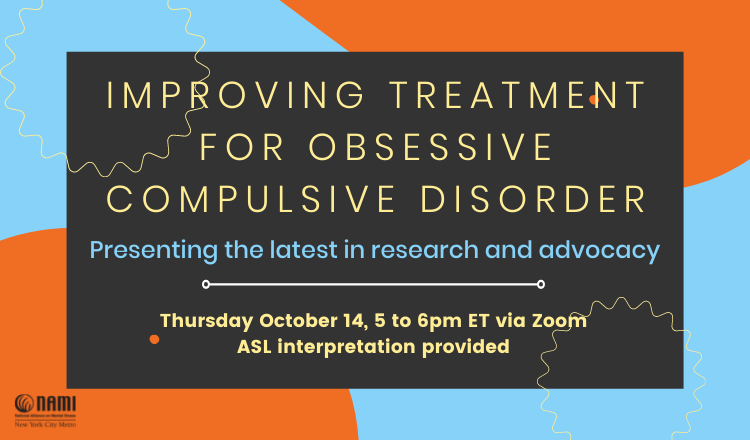
More than 2 in 100 (2%) of Americans will experience OCD during their lifetime. Nonetheless, the disorder remains misunderstood, misdiagnosed, and stigmatized.
Hear from researchers and advocates dedicated to improving care for OCD. Whether or not you or a loved one is diagnosed with OCD, join us during OCD Awareness Week for clinical and personal perspectives on how we can all help close a gap in the mental health system.